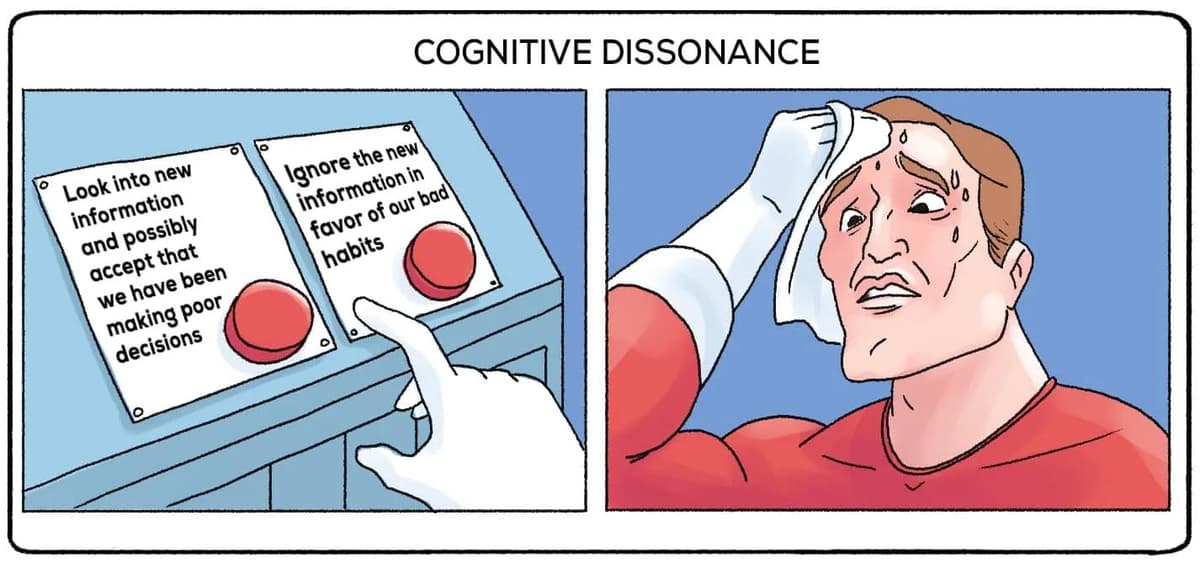Jack Murray - BlogPassive learning, the convenient myth871 words (approx 5 min)

I can’t believe it’s taken me this long in life to realise and truly internalise.
Passive learning is a complete and utter myth - it’s just edutainment. And it can be dangerous edutainment too, deluding you into believing you’re more competent than you actually are.
Passive learning is effectively entertainment that is educational in nature, but ultimately you can only gain declarative knowledge from. The main example is watching or reading or discussing or listening to something about a topic, rather than actively engaging in the ‘hard craft’ skill being discussed. It is interesting stuff, but it’s only vaguely useful in vague contexts. It’s stuff like concepts and facts and frameworks and soundbites.
It’s incredibly easy to fall into the Dunning-Kruger Effect with a brain filled with this kind of knowledge. It plagues business contexts - from product management to leadership, business strategy, and anywhere you’re not performing a specific, craft-based skill.
Many people lack real experience, and they try to make up for that lack of experience via gaining declarative knowledge through passive learning. It’s well intentioned, but unfortunately it’s insufficient. Only actual experience suffices.
It’s so easy to delude yourself into thinking that you know more than you know when your brain is filled dominantly with declarative knowledge. Sadly, this is painfully common in business / corporate contexts.
Active learning is the only means of learning that will actually improve your life and escape you from the Dunning-Kruger Effect. That is, gaining the real experience applying the stuff yourself in varied contexts. But active learning is effortful, cognitively hard, and extremely time consuming.
There are no shortcuts.
But what you gain is immense amounts of procedural knowledge that simply cannot be backfilled with declarative knowledge.
It is actually trying to solve the math problem yourself, actually shipping the product, actually writing the code, actually lifting the weights, actually working on the ground making mistakes leading teams in varied scenarios. You get the point.
You don’t become a strong weightlifter without having ever stepped in the gym and instead taking an online weightlifting course. You have to lift the weights yourself.
You don’t learn to drive a car by just studying how cars work and watching a Youtube video about how to drive. You have gain experience trying to actually drive the car.
You don’t learn to speak Spanish without ever speaking to a native Spanish speaker. You have to have countless real world conversations with native speakers.
You don’t grow into an amazing leader by simply listening to podcasts and doing a fancy, expensive course. You have to have experienced working with countless teams in varied contexts solving different problems, making mistakes and handling conflict.
Yet in many contexts, especially business and personal development / self help ones, we delude ourselves into thinking this doesn’t apply. It’s pure cognitive dissonance.
Active learning and procedural knowledge is king. It’s very easy to backfill declarative knowledge gaps, it’s extremely difficult and effortful and time consuming to backfill procedural knowledge gaps.
And yet, the passive learning devil creeps in via a sneaky passageway. It’s usually where someone (most likely an extrovert exuding confidence) has some small amount of procedural knowledge, but the vast majority of their knowledge is purely declarative. It’s a type of ignorance. This is the scenario where you get the leader that simply cannot comprehend why delivering something that looks so simple is actually hard, or makes judgement calls without properly consulting the actual experts.
I’ve sure been guilty of this (though I’m hopeful that when this ignorance has been me that it hasn’t come along with being an asshole).
I’m also not saying that everyone has to have procedural knowledge about everything. It’s okay to be procedurally ignorant in probably the vast majority of areas of expertise. It’s impossible to know everything. However, the fundamentally important part is to have humility and recognise where your actual sphere of competence is. That is, where you have the requisite procedural knowledge to truly understand, as well as whatever declarative knowledge you like.
I thought I generally understood software engineering, until I actually started writing code across varied projects myself. Now I think back and cringe at my ignorance.
I thought I understood entrepreneurship, until I actually tried to make a business myself (no framework can prepare you). Now I’ve eaten some humble pie.
I thought I understood product management, until I worked in double digit numbers of different teams of different people over nearly eight years, in vastly different problem spaces. Now I know what matters, what doesn’t, how to ship big bets, and how to more reliably move the needle when it’s needed.
Passive learning is lazy, not in the good way. Active learning is extremely hard, effortful, frustratingly time consuming, often repetitive, and involves embracing a ‘no shortcuts’ mentality - but it’s insurmountably superior to passive learning.
You aren’t actively learning unless you’ve actually questioned whether all this time and effort you’re exuding to the craft is actually worth it.
A person on the other side of immense amounts of passive learning is a deluded fool.
A person on the other side of immense amounts of active learning is a true genius.

